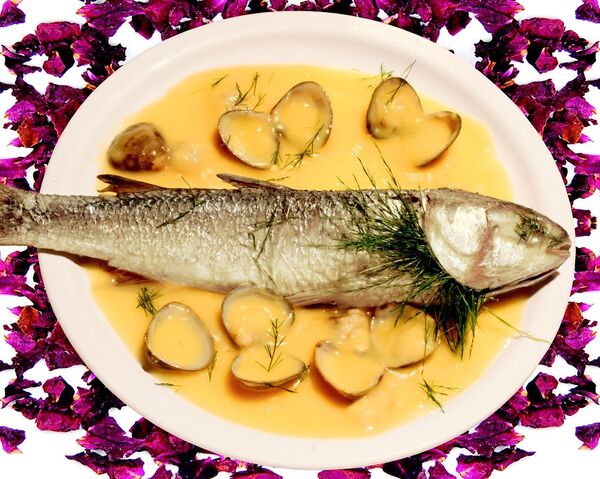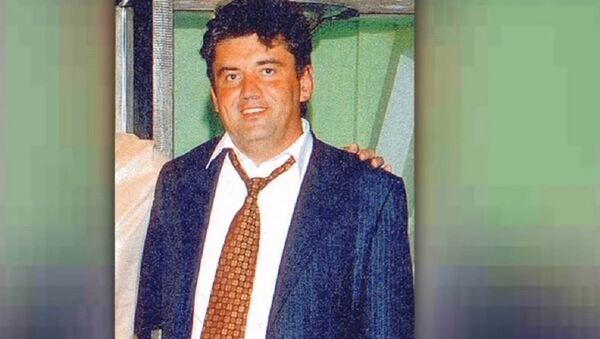Russian businessman Alexander Perepilichnyy may have been a victim of an extremely rare form of food poisoning, an inquest in London has heard. But the inquest, sitting at the Old Bailey, has heard no evidence of foul play.
On Wednesday, April 11, Perepilichnyy's secret Ukrainian lover Elmira Medynska gave evidence from Paris by videolink that he had vomited three times on the last night of their tryst in the French capital after complaining about the food in an Asian restaurant, the Buddha Bar.
He flew back to London the following morning and died a few hours later after going out for a jog near his £3 million ($3.44 million) home in Surrey.
On Thursday, April 12, Dr Peter Wilmshurst, an eminent cardiologist, told the court he believed a rare form of food poisoning was the "number one suspect" in Mr. Perepilichnyy's death.
High Levels of Histamine
Scombroid poisoning is caused by eating high levels of histamine in decaying bladdered fish — tuna, salmon or mackerel.
The inquest heard fatalities from scombroid were extremely rare but Dr. Wilmshurst pointed out a case in 2014 when an Australian women and her daughter died after eating fish in Bali.
Newsroom printer feels the same way as I do about reading 500 pages of the Perepilichnyy inquest pic.twitter.com/YVU1iIe952
— Julia Macfarlane (@juliamacfarlane) April 11, 2018
An investigation in March 2015 discovered that Noelene Bischoff, 54, and her 14-year-old daughter Yvana had died from scombroid poisoning.
Dr. Wilmshurst said Mr. Perepilichnyy's symptoms — food tasting odd, vomiting and reddened skin — were consistent with scombroid.
Miss Medynska said Mr. Perepilichnyy complained about his food and sent one dish back, although she could not remember if it was sushi or tempura.
Fish Tainted With Scombroid Tastes 'Metallic'
Later he locked himself in the bathroom of the luxury Hotel Bristol for an hour and she heard him vomiting three times. When he emerged, she said, he was very red in the face.
Dr. Wilmshurst said scombroid victims often describe the tainted fish as tasting "peppery" or "metallic" and suffered vomiting and a distinct reddening of the face and upper body.
He said scombroid caused cardiac arrhythmia — a fastening of the heartbeat — and he said exercise, like jogging, may have exacerbated the condition.
Russian whistleblower Alexander Perepilichnyy spent the night before his death vomiting after eating food that tasted “bad” at an exclusive restaurant, his lover told his inquest. Police never intvd her. She testified after @BuzzFeedNews tracked her downhttps://t.co/CgcKuuhyoy
— Jason Leopold (@JasonLeopold) April 11, 2018
The inquest heard Mr. Perepilichnyy — who had met Miss Medynska on a dating website and was conducting a secret sexual relationship with her unbeknown to his wife — may have taken Viagra while he was in Paris.
Peter Skelton QC, counsel for the coroner, asked Dr. Wilmshurst if he could be sure scombroid was the cause of death.
"No, I can't say that," he replied.
"Could it have contributed to his death?" asked Mr. Skelton.
"If someone has scombroid fish poisoning at night, then if they die the next day if you can't find any other reason for their death it becomes the number one suspect," Dr. Wilmshurst told the inquest.
He said it would be highly coincidental if Mr. Perepilichnyy suffered scombroid poisoning but died of another cause less than 24 hours later.

Various Theories 'Unlikely'
The inquest then heard from Professor Robin Ferner, a clinical pharmacologist from Birmingham University.
He was led through a number of possible causes of death, including poisoning by colchicine, herbicides, organophosphates or monoamine oxidase inhibitors (MAOIs), all of which he said were "possible, but unlikely".
The inquest has been told that Mr. Perepilichnyy was involved with a company called Hermitage Capital Management, who claimed to be the victims of a $240 million tax fraud in Russia.
Henrietta Hill QC, counsel for Hermitage Capital Management, asked him if he remained of the view that nerve agents were unlikely to be responsible for Mr. Perepilichnyy's death.
"Nothing new has emerged to change my view, including the Korean murder," Professor Ferner said, a reference to the death of Kim Jong-un's brother at Kuala Lumpur airport last year.
Kim Jong-nam is believed to have been killed by a nerve agent called VX.
Fascinating evidence: Alexander #Perepilichnyy was in Paris with (girl)friend shortly before he dropped dead. He spent the night vomiting after a meal out. Recovered but then collapsed and died soon after flying back to London https://t.co/jslBry6U90
— Luke Harding (@lukeharding1968) April 11, 2018
Plant Toxin Theory Based on 'Assumption'
Later the inquest heard from Dr. Geoffrey Kite, a botanist at Kew Gardens, who was the first to raise the theory that Mr. Perepilichnyy had been killed by gelsemium elegans, a Chinese plant toxin often known as "heartbreak grass".
Robert Wastell, junior counsel for the inquest, suggested to Dr. Kite that his theory was based on an "assumption".
Dr. Kite conceded no trace of plant toxins, including gelsemium elegans, had been found in Mr. Perepilichnyy and he then went into great detail about his theory about why gelsemium elegans might be related to the "unknown ion" found in Mr. Perepilichnyy's body.
The inquest is due to finish on Friday, April 13, before Judge Nicholas Hilliard QC, who is acting as coroner, adjourns before recording his verdict.




